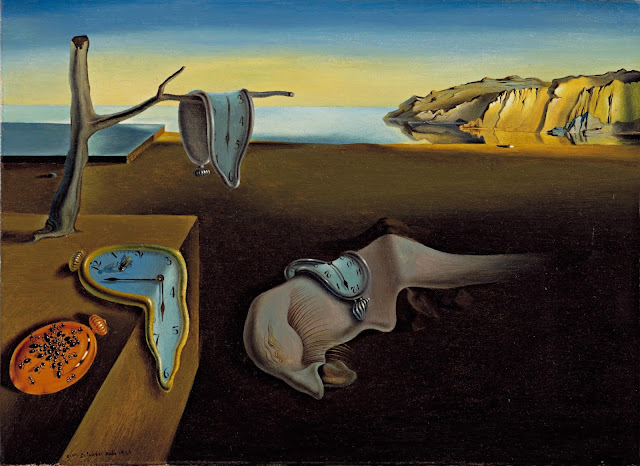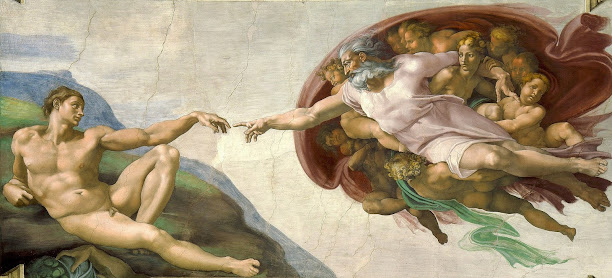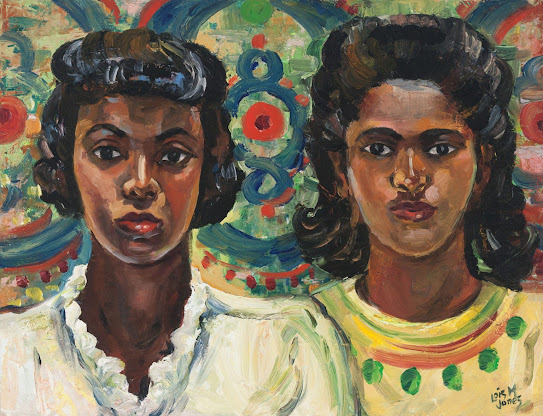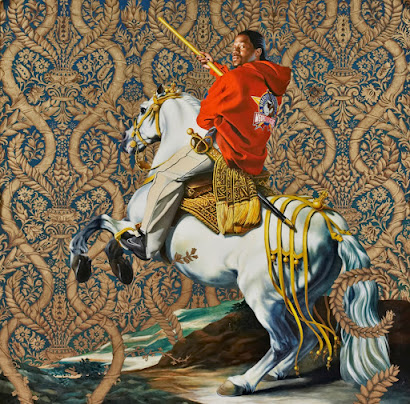Transience in The Mezzanine
In my first blog post, I would like to examine the ways that I think Howie’s narration his life fits into Aurelius’ idea of the transience of life, and also the ways that it doesn’t.
We
know that Howie disliked Aurelius’ view of life. However, despite Howie’s
protests to this view that life is fleeting and trivial, I think that much of The
Mezzanine supports this idea. Howie obviously has a strong fixation on
man-made products. In his detailed descriptions of various types of machinery
or products, he often talks about how they have changed over time, or when they
first emerged. Like in the case of milk delivery, he may even reminisce about
the end of these products. Additionally, Howie sometimes talks about things
that, as readers born in the early 2000s, we cannot relate to because they don’t
exist anymore. My favorite example of this occurs when Howie is talking about
mechanical feats in bathrooms, and he talks about trying to get a passing
glance into the women’s bathroom (creepy) to “glimpse the row of sinks and the
women leaning over them toward the mirror to adjust their shoulder pads or put
on lip gloss”. This description of women adjusting their shoulder pads in front
of the mirror seems funny to me now because I have never seen anyone wearing
shoulder pads, but when The Mezzanine was written apparently this was
something women did. All this to say that these man-made objects that are
constantly capturing Howie’s interest are all transient. Milk delivery doesn’t
exist anymore, shoulder pads are few and far between, and probably someday even
paper towels and escalators won’t exist anymore.
Despite
the fact that a large part of the subject matter in The Mezzanine is about
things that are transient, I think that other descriptions of Howie’s stand the
test of time. I am mainly referring to Howie’s detailed depictions of human
thought and experience. Not everyone is going to be able to relate to every one
of Howie’s thoughts, but when reading The Mezzanine, time and time again
you think, “I do that, too” or “I think that way, too”. Though the exact
awkward situation of deciding whether or not to ask for a bag to carry
groceries has not always existed and someday will no longer exist, human
over-analysis of social cues and digressing trains of thought have been with us
for a long, long, long time. I’m sure cavemen sometimes felt self-conscious.
So, even though we are all transient and so are the objects around us, the
uniquely human thoughts and experiences Howie talks about will exist for as
long as humans do.




I think that it's a really interesting how you've used the nostalgia of The Mezzanine against itself. By the book saying that it itself defies transience, and then goes to talk about inventions we would never have considered in our solely 21st century lives, it ultimately proves itself wrong. At the same time, you've also noticed that social norms far outlive physical, man-made items in relevancy, which I think is crucial, but also backs up The Mezzanine's idea that life can't be transient as long as there are always people.
ReplyDeleteThis was a really cool take. I hadn't thought of the manmade objects Howie described as transient really, since I felt like once they came into the world, a lot of them were upgraded upon to get what we have now through the process of innovation. Although I've never really heard the word transient before, so I wouldn't be surprised if I'm understanding it the wrong way. Anyway, I completely agree with what you said here.
ReplyDeleteYes, good eye--Howie's mention of women in a professional setting wearing "shoulder pads" is a great reflection of the fact that this novel is set in the 1980s. Don't picture these women as football players: search for images of women's professional wear from the 1980s; Kirstie Alley's corporate-manager character on the show Cheers (Rebecca Howe) is a good example. Most jackets and blazers that professional women would have worn at this time had little shoulder pads under the fabric, extending their shoulders out in an unnatural way to connote power and influence (presumably). Now those "power suits" just look like relics of the 1980s. Fashion is maybe the most transient aspect of culture, and it's a great illustration of how the world that Howie is trying to make "stand still" with his narrative still is always moving forward.
ReplyDeleteI agree. Howie kind of created a time capsule of his detailed experiences. Yet, I don't think it's the experiences themselves that are the relatable aspect, it is his detailed thought process that is. We as people never bother to put this detailed thought process onto paper.
ReplyDeleteI definitely agree with you about how the human experiences will remain even if the material items around us don't. While I was reading I obviously saw many mentions of things I haven't personally seen (shoulder pads, milk deliveries, etc) but I felt I was still able to relate to what he was thinking in those moments because I was already previously aware of those things. I knew before reading the book how women wore shoulder pads in the 80s and, although I had never seen one in person myself, I could easily picture what Howie saw during that passage. I think now the book acts almost as an exhibit where we can see what a regular day in the 80s looked like. While we won't go to any office building now and find every woman wearing shoulder pads or go to a neighborhood and see milk jugs on every doorstep, it's great that we have this book to imagine exactly what that looked like.
ReplyDeleteThis is an interesting take. I hadn't made this connection between the objects he describes and the way he describes human interactions. Also, I love the paintings that you choose to put in your blog posts- the melting clocks in this one seems to fit the theme of objects being transient. And yes, it is nice to read about someone thinking this deeply about social interactions. It is comforting to know that this is a universal experience.
ReplyDelete